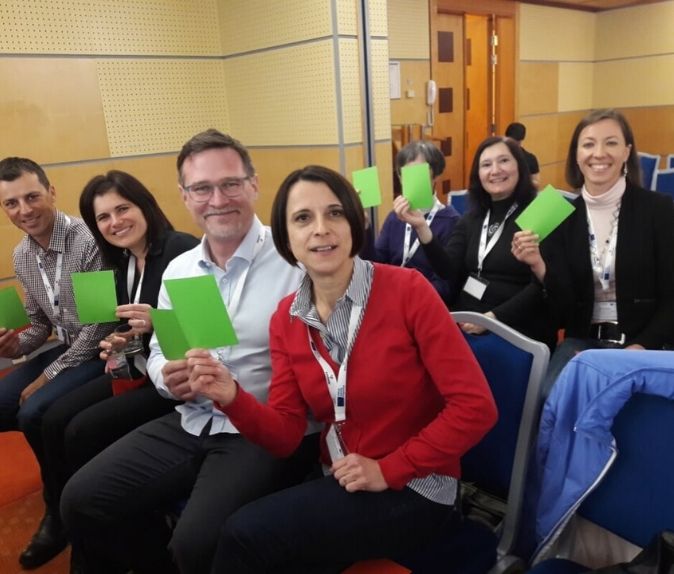Preventing Early School LeavingErasmus+ course summary
Slovenia has one of the lowest rates of the early school leaving among EU countries. The reason behind it is not only because of the policy measures, but also because of a high capacity of schools to tackle the dropping-out. To prevent early school leaving schools need to develop a systemic approach that includes simultaneous activities on multiple levels: work with teachers and counselling service, parents and pupils. Part of the course is devoted to building relational competence, which is the glue of preventing early school leaving. The second part of the course is devoted to participatory learning methods with the purpose of greater inclusion of students who are in risk of leaving the school. We use various working methods to foster the growth of course participants: lecturing, working in pairs or groups, role play, discussion, expert consultations and examples from practice. "Everybody is a genius. But if you judge a fish by its ability to climb a tree, it will live its whole live believing that it is stupid." – Einstein
Session dates
Ljubljana25.11.2024 - 30.11.2024
24.11.2025 - 29.11.2025 Open for registration.
|
FeaturesRelated |
Create a safe environment in which you will be able to hear your learners' voices.
The root cause of early school leaving lies in unfulfilled psychological needs of students such as security and beloningness.
Course Content
PROGRAMME DAY-BY-DAY
Training usually takes place between 9:00 am and 14:00 pm, followed by after-class activities, that are optional.
DAY 1 We start off with an introductory meeting, explanation of practical arrangements and presentation of the participants and timetable. The participants are encouraged to express their expectations, needs and wishes regarding the content of the programme and learning methods. * We continue with the Theory of Three Participants, relational values, straightforward and inverted imitation/cooperation, existential needs, self-awareness. DAY 2 Relational competence – the ’craft’, how to establish the contact, the professional dialogue, beginning the dialogue, dialogue progression, attitudes and approaches, team work. DAY 3 Phases of conversation and practicing visualisation, mindfulness, metallisation, empathy, being and doing. Handbook of tools for preventing early school leaving. Half-day excursion. DAY 4 Facts about effective communication with parents, common mistakes and hurdles and how to avoid or correct them, techniques of active listening and constructive feedback, techniques of effective questioning, supporting and empowering parents to set goals and prepare an action plan and to build independence and responsibility in their children. DAY 5 Participatory learning methods: a motivating way to host learning and create learning communities. Circle practice: The Circle, or council, is an ancient form of meeting that has gathered humans in respectful conversations for thousands of years. Appreciative inquiry: Appreciative Inquiry is a strategy for intentional change that identifies best of ‘what is’ to pursue dreams and possibilities of ‘what could be.’ AI is a cooperative search for strengths, what is known, what is right. World Café:World Café is a method for creating a collaborative learning conversation around questions that matter by innovating instruction in the classroom. DAY 6 Evaluation and farewell. Documentation and certificates of attendance. * Some changes in the programme are possible - the content of the course is always adapted to the participants previous knowledge, expectations and requirements. The participants receive the Informational Booklet a few weeks prior to the start of the course. |
ERASMUS+ COURSES BY PRIMERA
Address students' basic needs for safety and belongingness to keep them in school.
BLOGS
Read about some topics of the Preventing Early School Leaving course.
INTERNATIONAL ERASMUS+ LEARNING WITH PRIMERA
Become a member of Primera's international learning community.
Your network is a family you choose. |
ERASMUS+ COURSES BY PRIMERA
Get effective tools which will help you to identify and work with students at risk of dropping out. |








